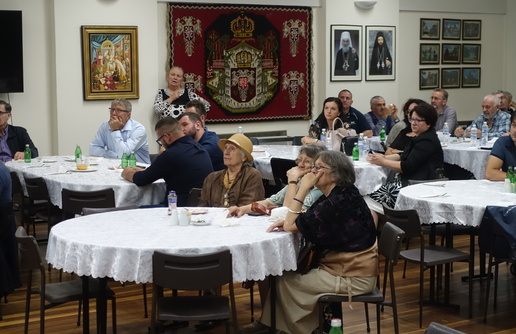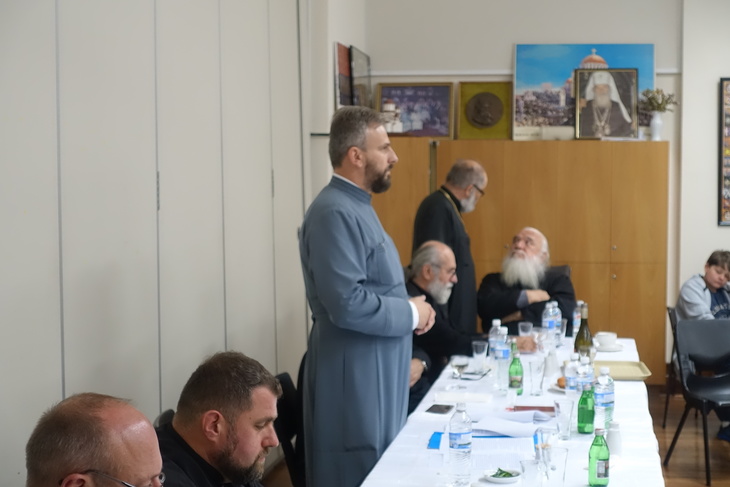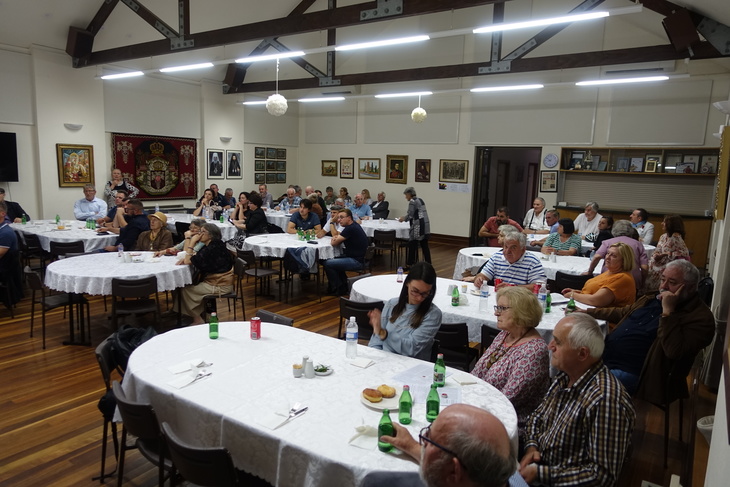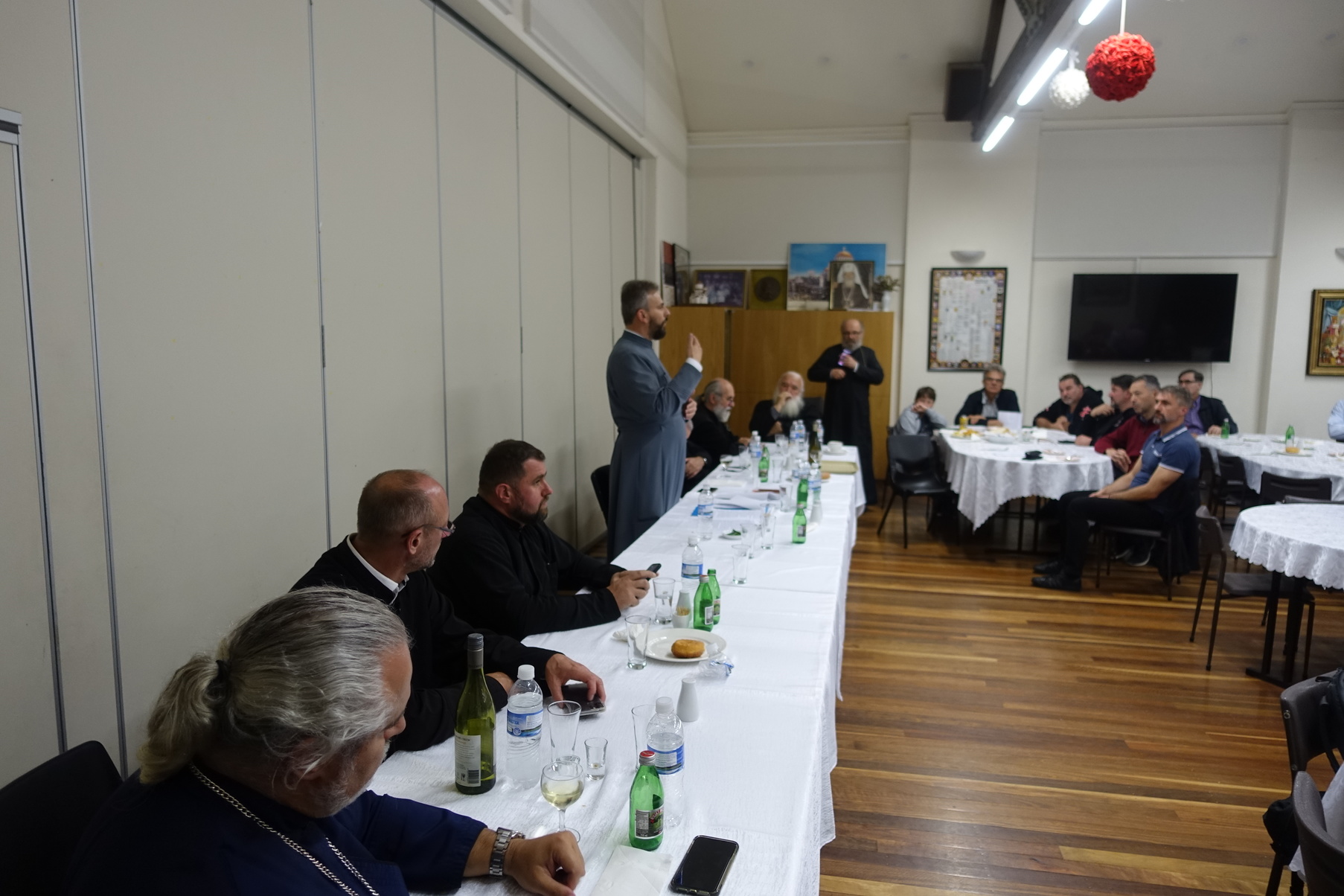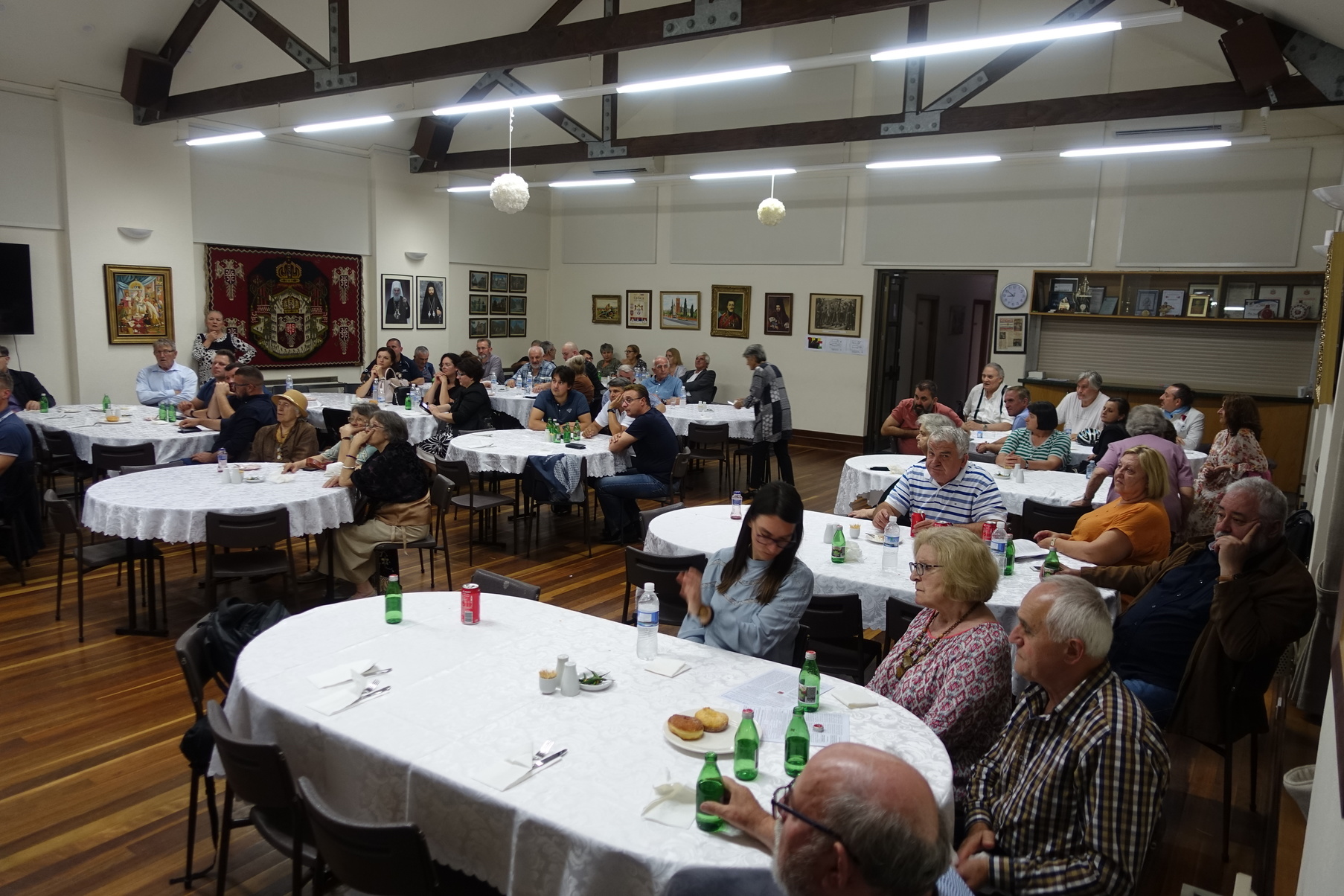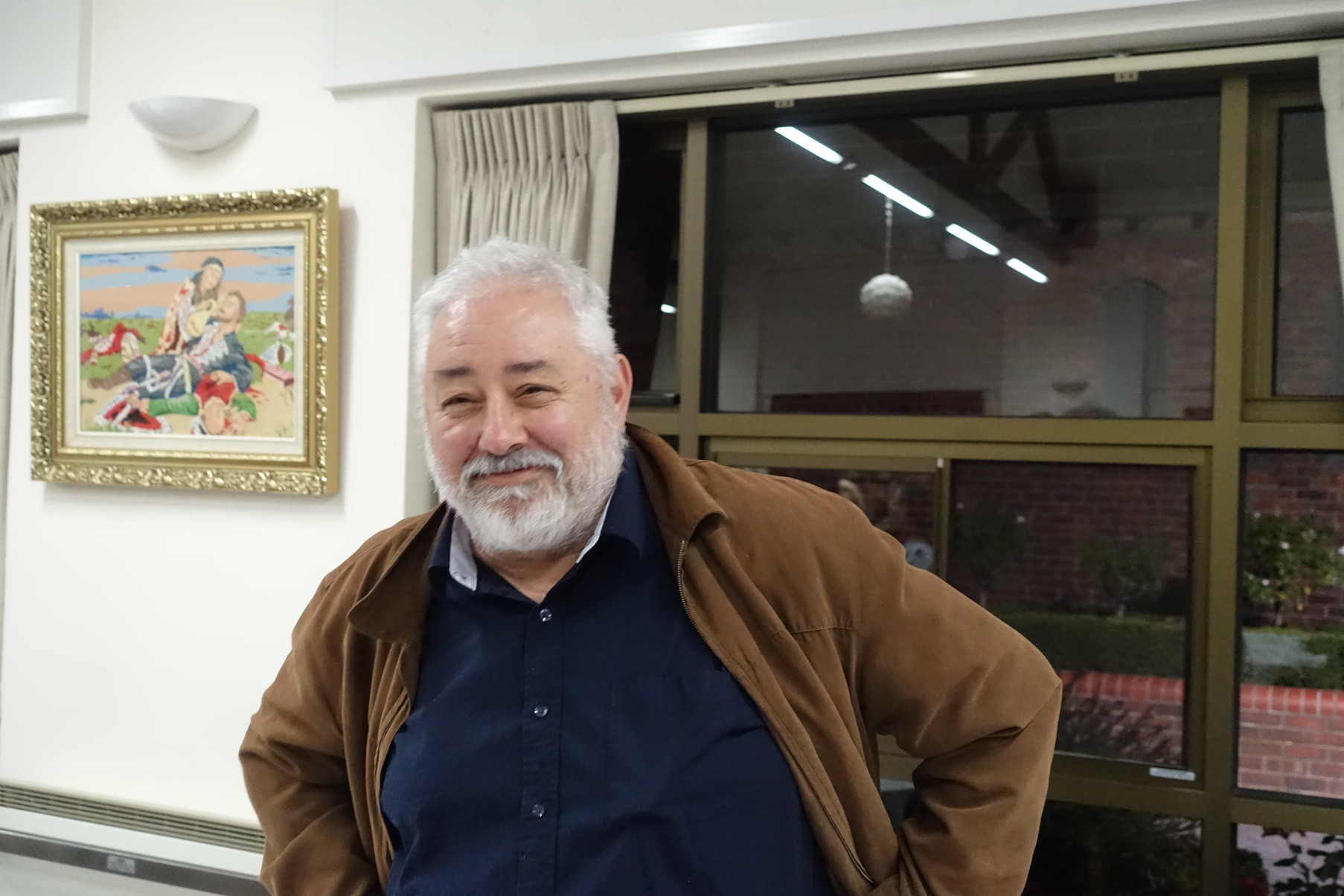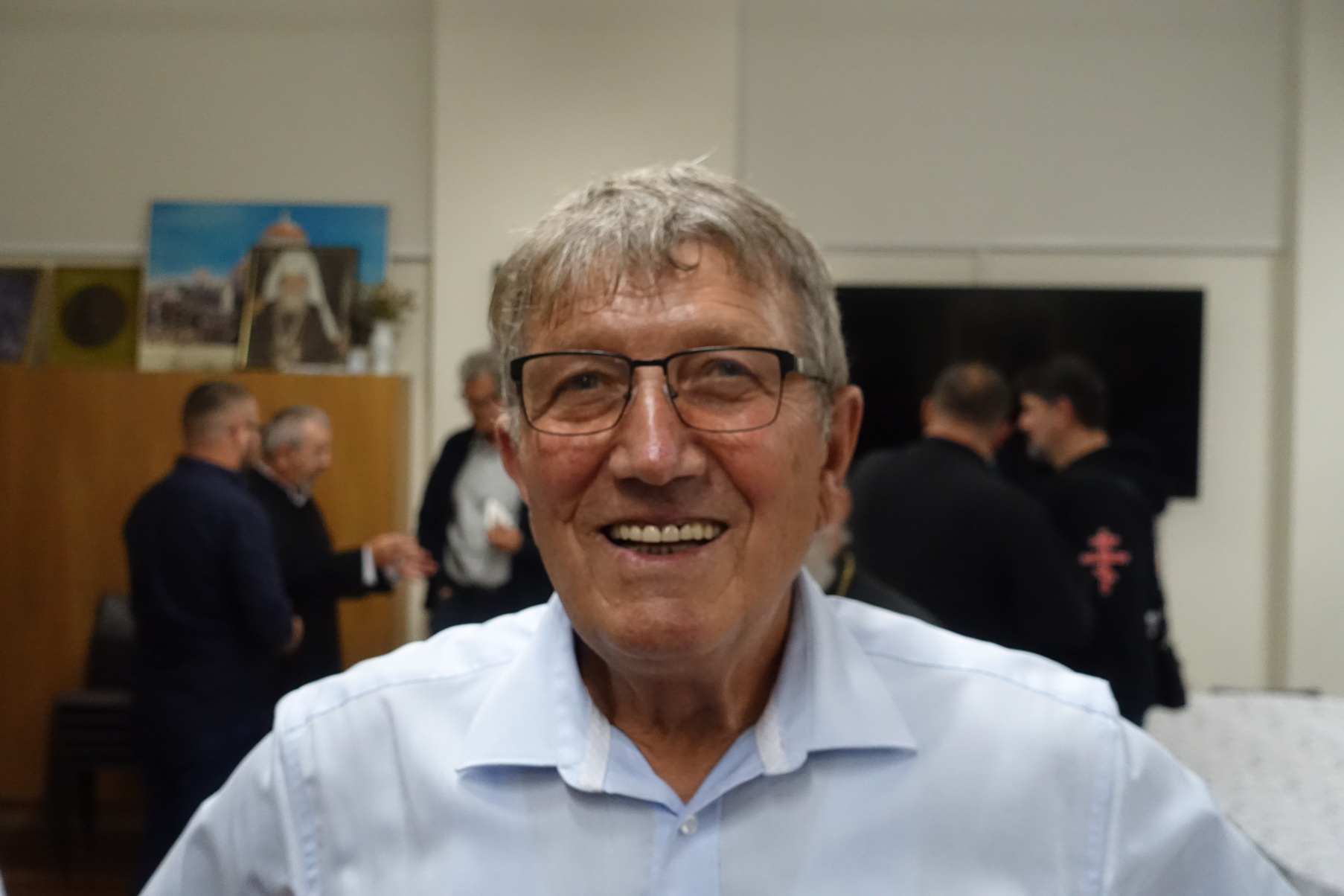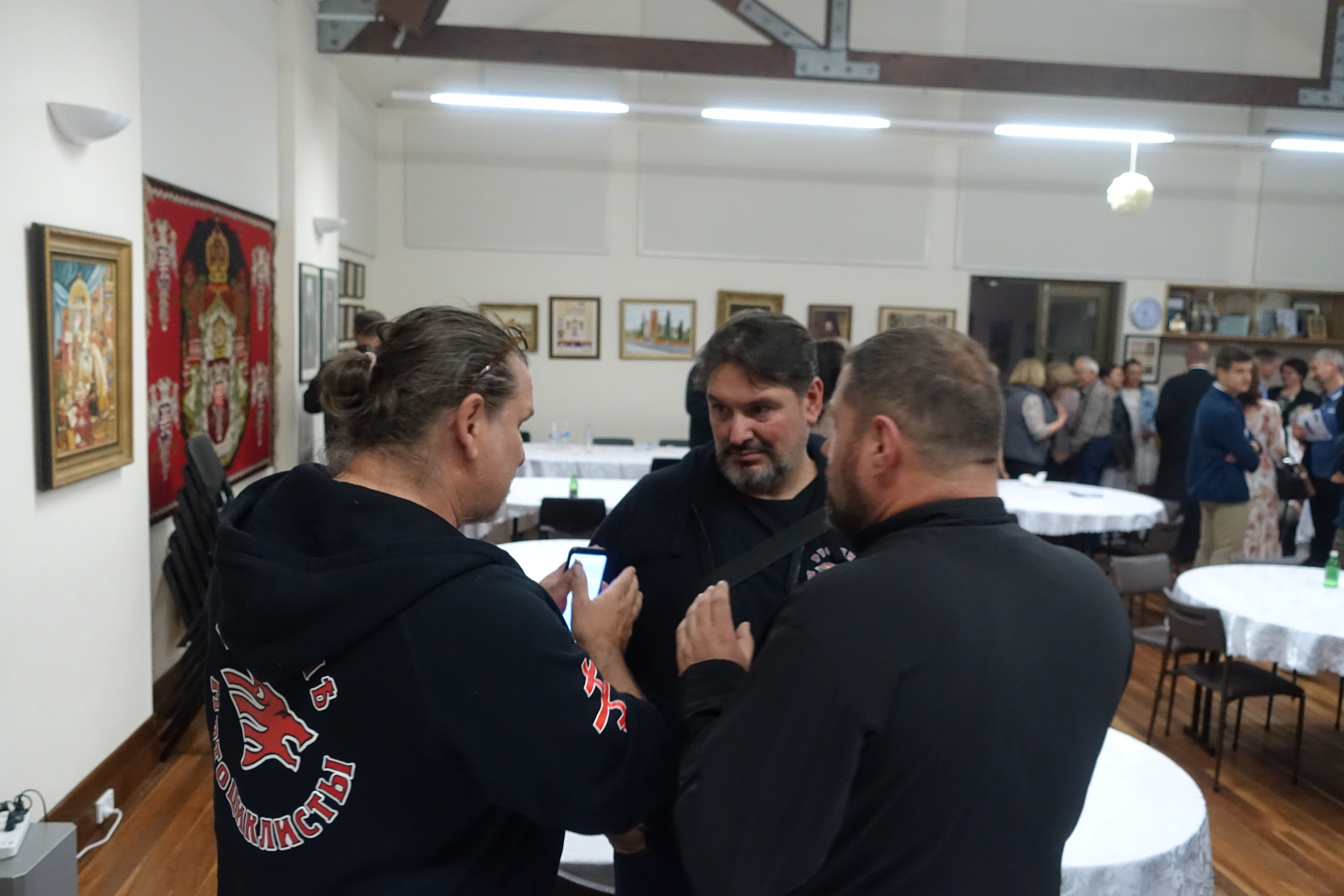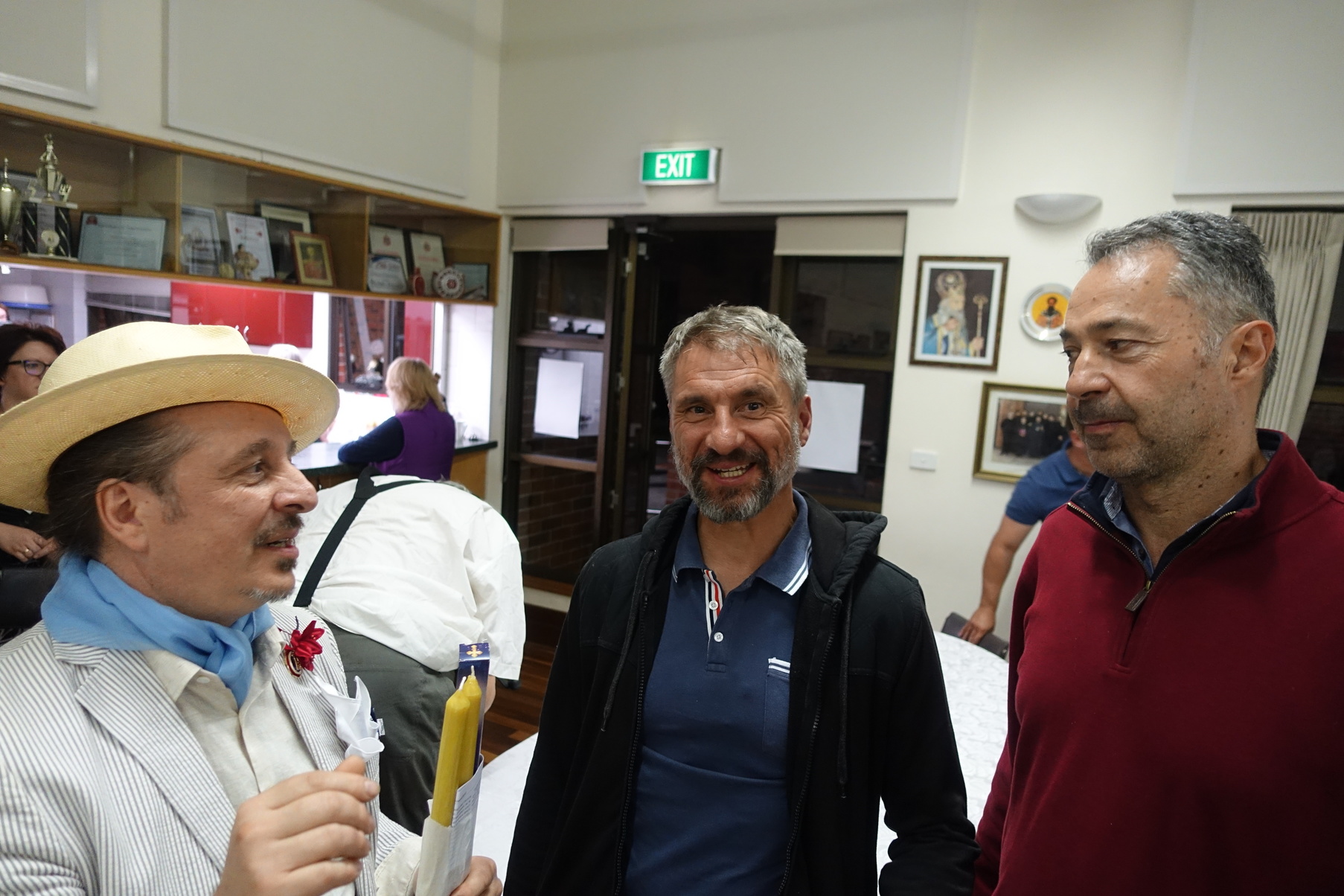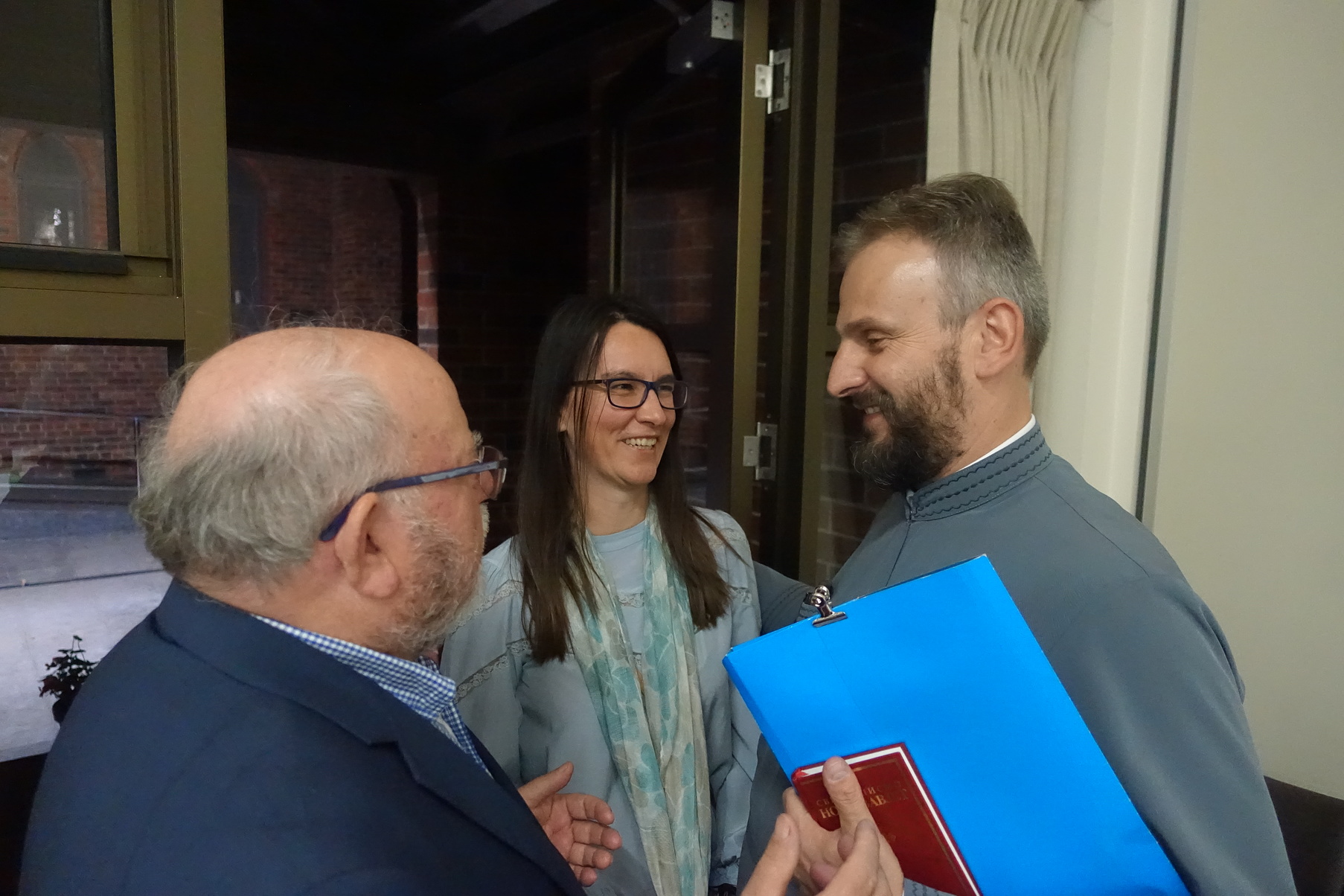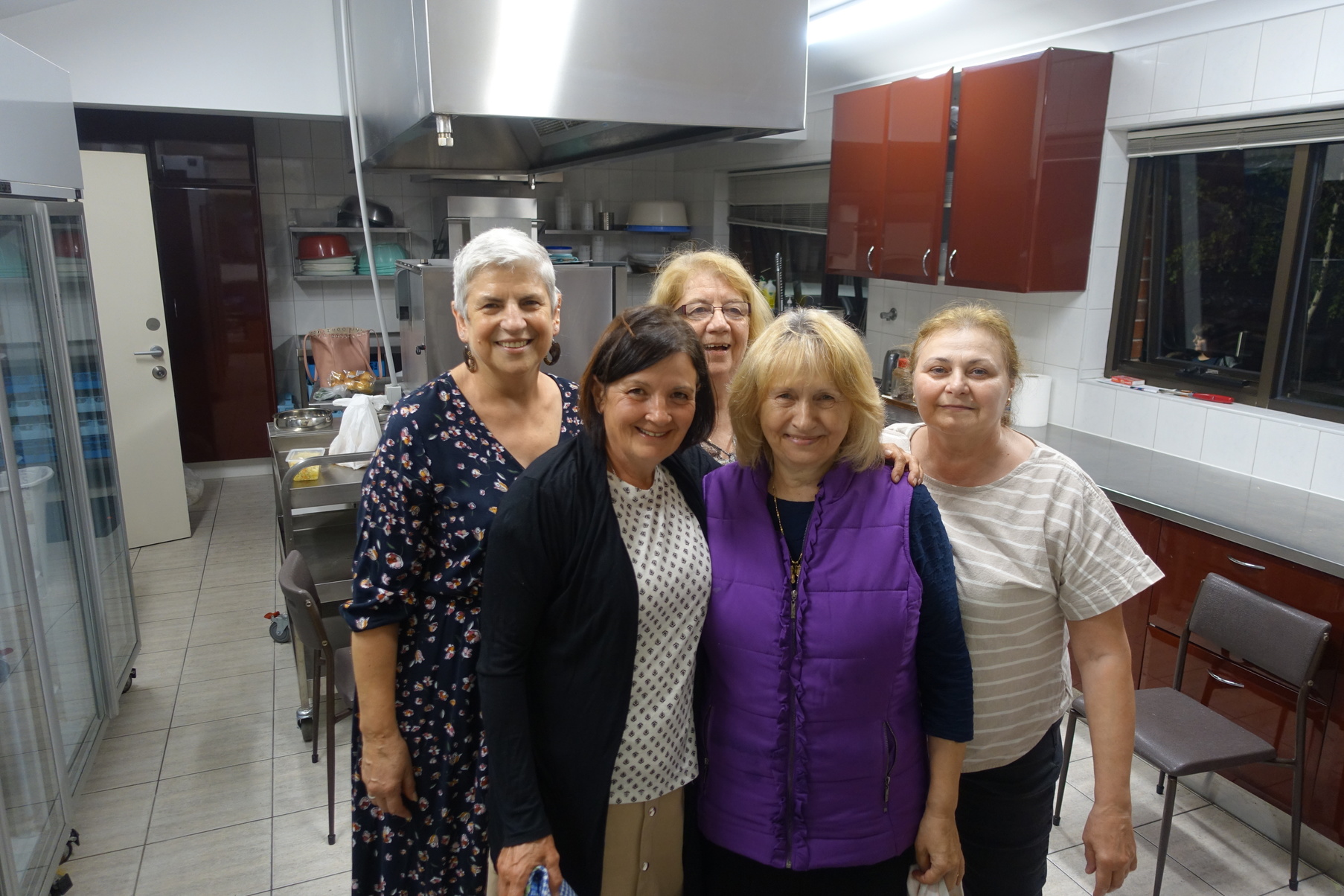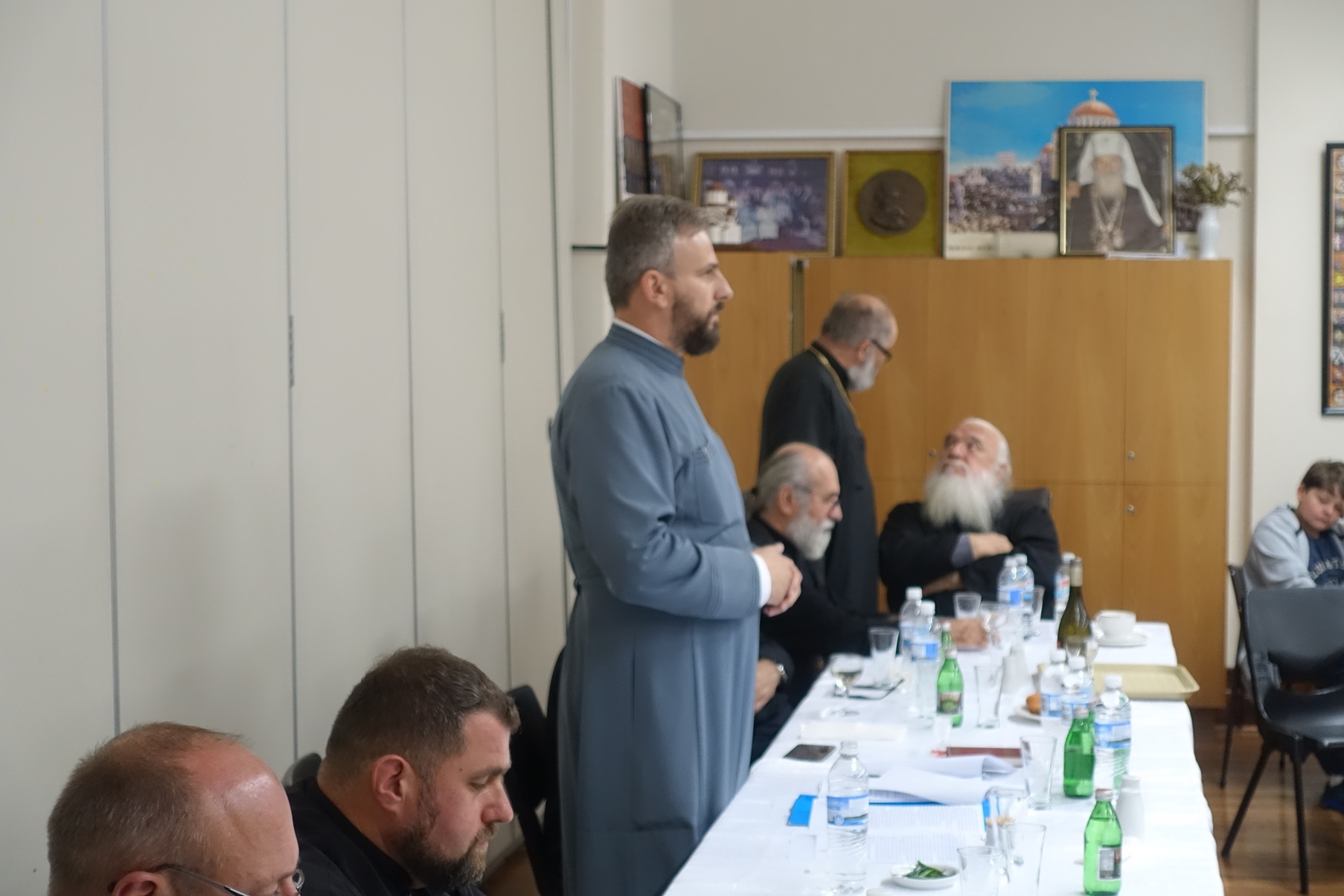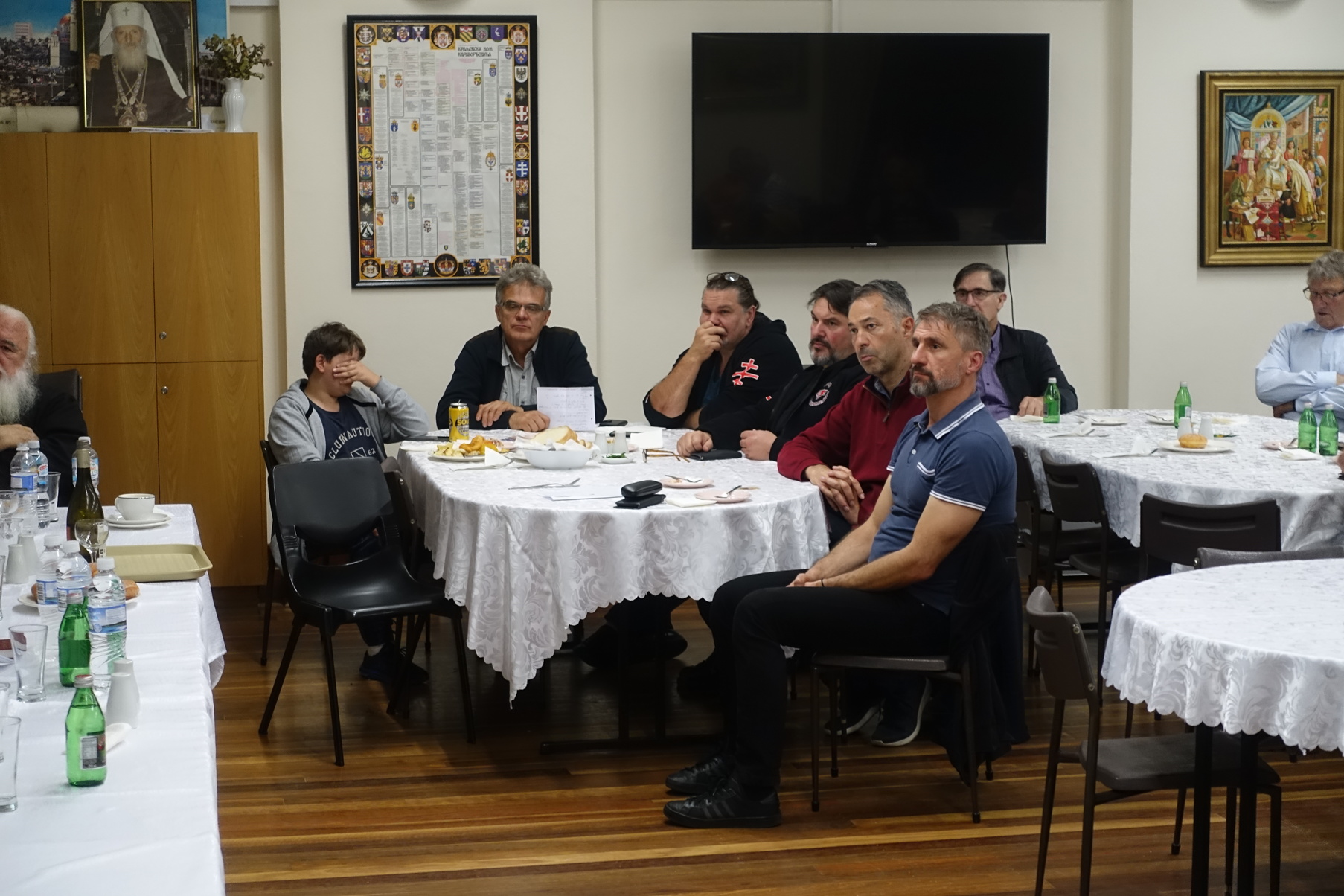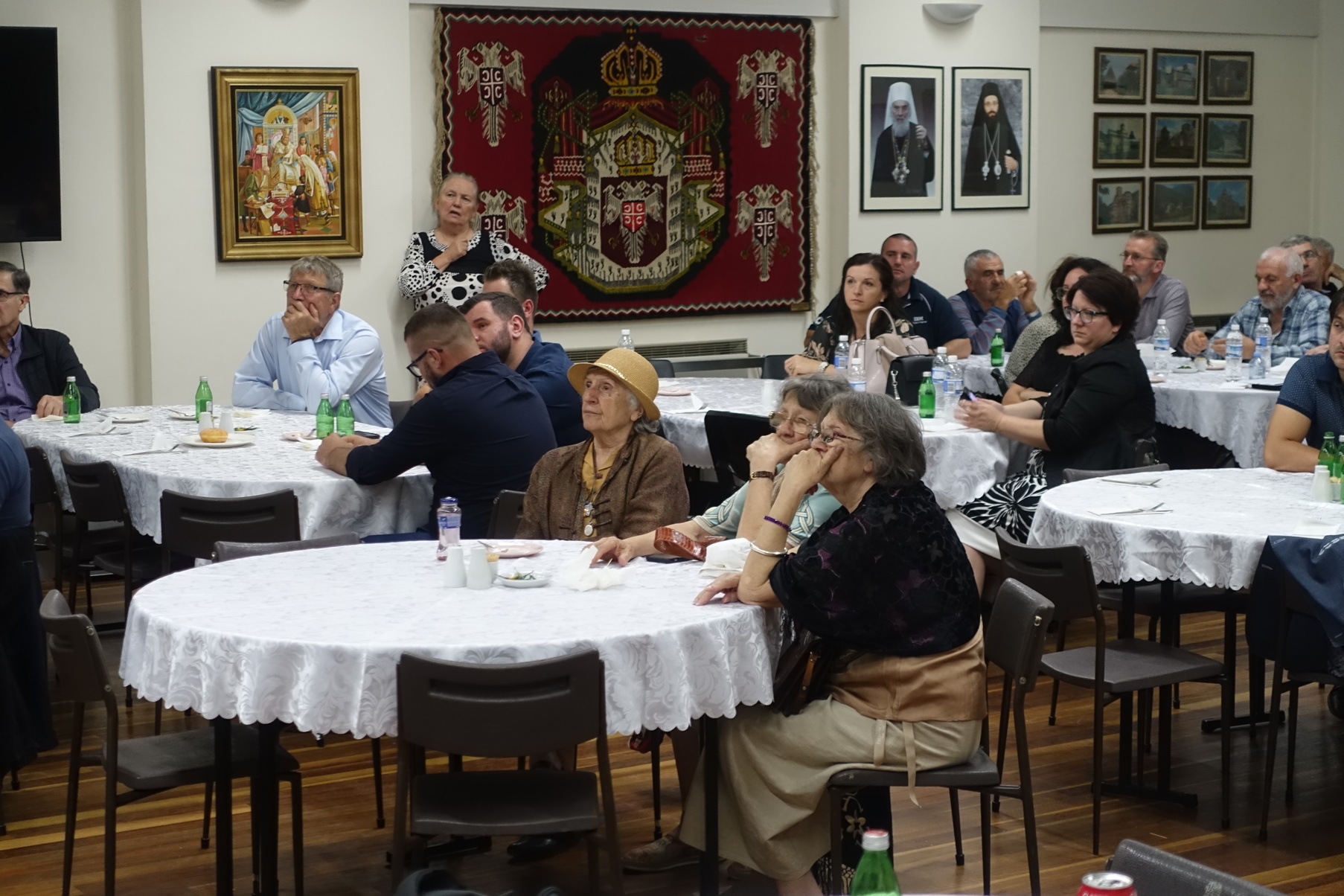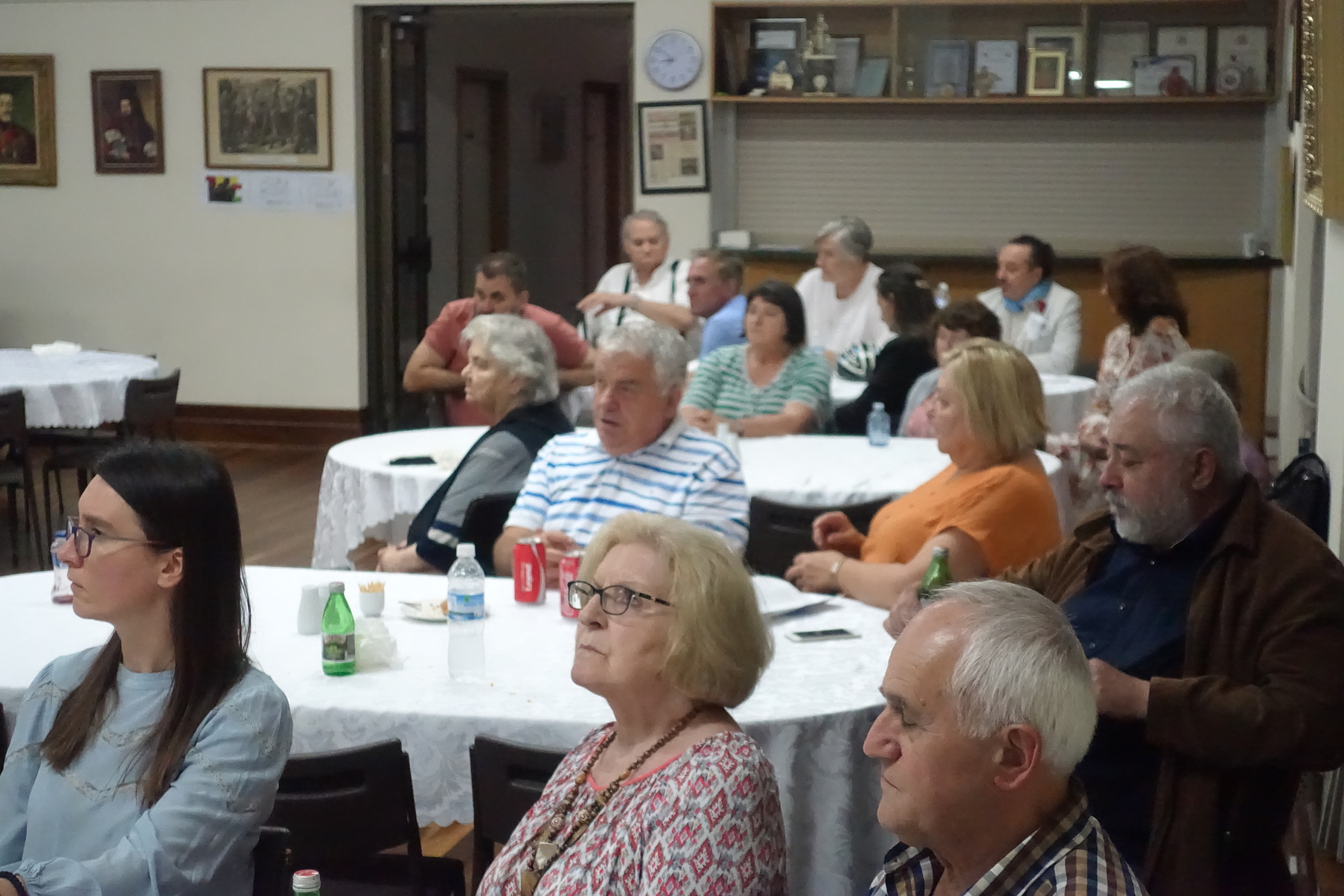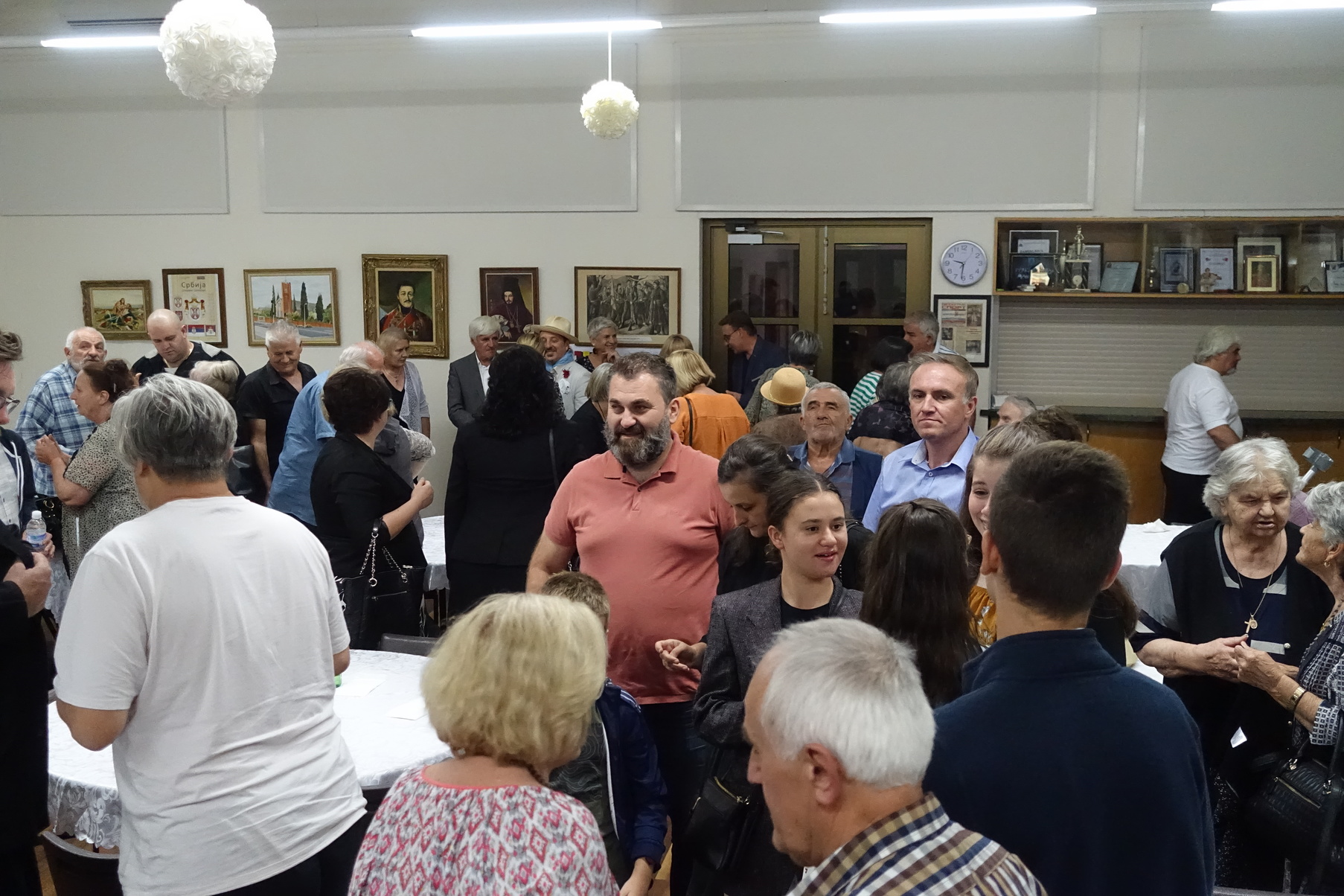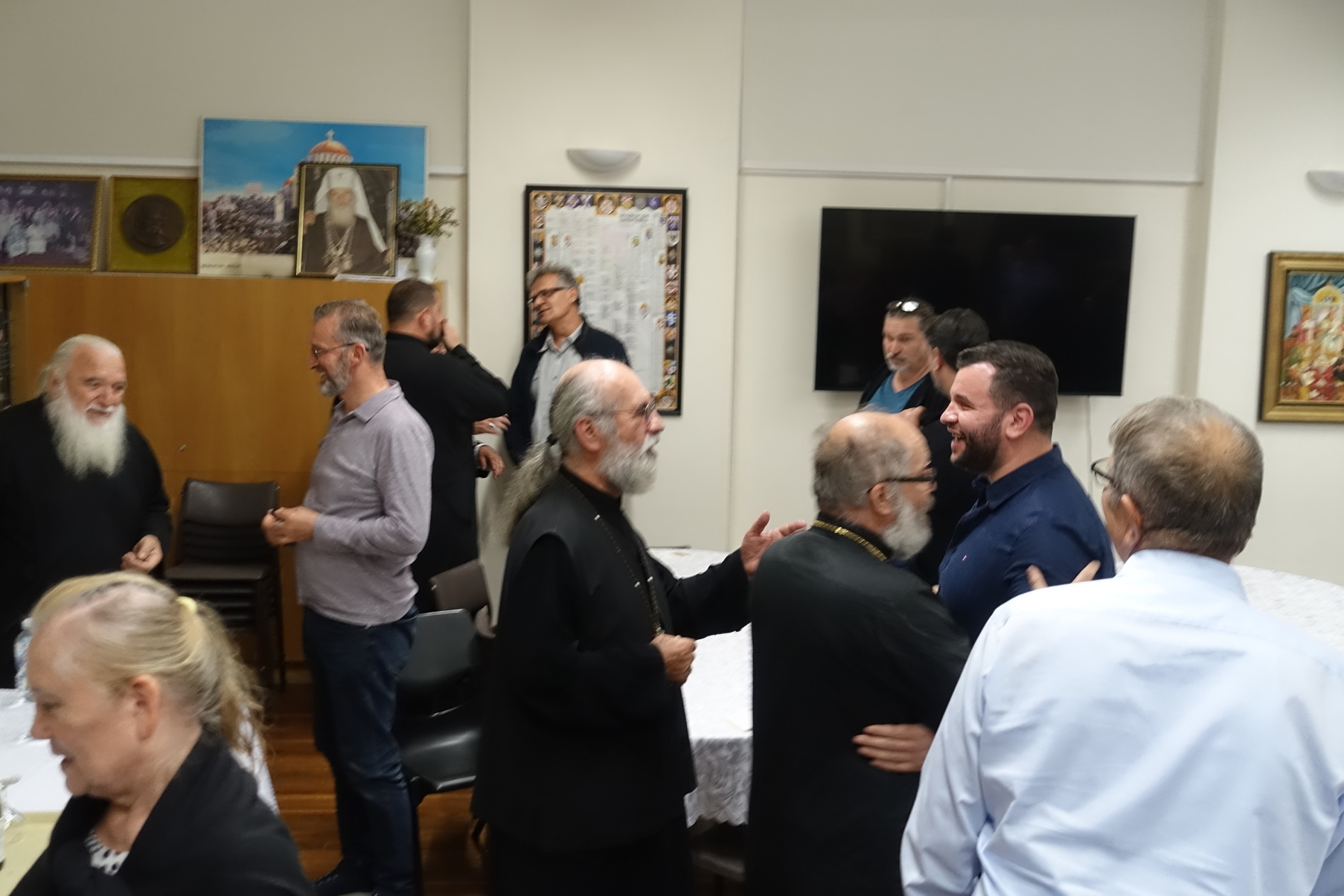Last night on Sunday of the Veneration of the Cross, as part of the Lenten programme of services and lectures, Fr Aleksandar Savic, parish priest from the Keysborough Serbian Orthodox Church, has addressed the theological topic of the Church purpose and its role in our life (“There is no salvation outside of the Church”).
At the beginning of his lecture, Fr Aleksander thanked for the attendants’ interest and fine tradition of of theological lectures during Great Lent in our Metropolitanate.
Then he commented on the currency of the lecture’s topic, given the marginalisation of the Church during the pandemic and defined the frame of discussion on the topic terms: the salvation as man’s return into communion with God after falling into sin, and the Church as body of Christ, where we meet with our Creator in this life through Holy Mysteries, in hope of life eternal in the Kingdom of Heaven.
Fr Aleksandar has reinforced his foundational thesis as per the topic title with the words of our Lord Jesus Christ from the Gospel:
He said to them, “Go into all the world and preach the gospel to all creation.
Whoever believes and is baptized will be saved, but whoever does not believe will be condemned."
(Mark 16,15-16)
In the continuation of the lecture, Fr Aleksandar has deepened this primary evidence through positive interpretion of the Holy Scripture and tradition of the Holy Fathers, remarking that he left out on purpose negative, non-Orthodox and arbitrary intepretations to be adressed at the end of the event by the Q & A session.
After the outstanding, simple but very tasty Lenten dinner, prepared and served with love by dear sisters, the parishioners and our guests have engaged in discussion with Fr Aleksandar and asked for additional clarifications on various questions. Here are some of them:
Can the non-Orthodox seekers for God’s truth be saved?
Fr Aleksandar has indicated that every man can be individually saved, regardless of his tradition and upbringing, but whether a particular nation or region will be collectively honoured to receive God’s word is within the providence of the Lord. That can be an act of compassion due to the spiritual state of a particular people - and illustrated this with examples from the Acts where Holy Spirit forbid the Apostles to preach in Asia, and limited acceptance of Apostle’s Thomas missionary work in India.
Why our Church does not emphasise more the acts of kindness that, it seems, are the main quality of non-Orthodox Christian denominations?
Nonwithstanding the blessed acts of kindness (soup kitchens etc.) that are particularly visible activities of the Protestant denominations, Fr Aleksandar has underscored the fact that Church is not a charity, meaning that the Church is the vessel of salvation where whe deify ourselves, where we meet our Lord. Our Church helps those in need within its capabilities and cannot be compared with rich Western Christian denominations. On the other hand, it is also necessary to differentiate true benevolent deeds from advertised acts of mercy, so pervasive in the modern society.
How can we understand the parable of Good Samaritan (Luke 10,25-37) where a foreigner inherits eternal life, as opposed to a priest and Levite who are supposedly “of true faith”? Isn’t this, on the surface at least, in contradition to the lecture’s topic that without the Church there is no salvation?
Fr Aleksandar has clarified that Holy Scripture cannot be interpreted arbitrarily and the context has to be taken into account. The parable of Good Samaritan is used by Christ to answer the question of who is our neighbour, аnd He reinforces the answer by contrasting it with someone who is just nominally so, like the Pharisees who Christ calls “whitewashed tombs”; but our neighbour is the one who does acts of mercy, and is therefore saved.
Can our Orthodox brothers who found themselves outside of the Church (the followers of late former Bishop Artemije, Macedonian schismatic church, Greek Old Calendarists) be saved?
As clarified by Fr Aleksandar, the schism in the church can happen in two ways: through heresy, which is the offence against the truth (non-acceptance of Orthodox dogmatic teachings and tradition); and through division, which is the sin against love, the foundation of the unity of the Church. Where there is no love, there is no grace, so our brothers outside of the Church cannot be saved.
The theological lecture concluded with common prayer and hymn to Theotokos “It is truly meet” around 9pm.
Watch the recording of the lecture at our Church’s Youtube channel:

